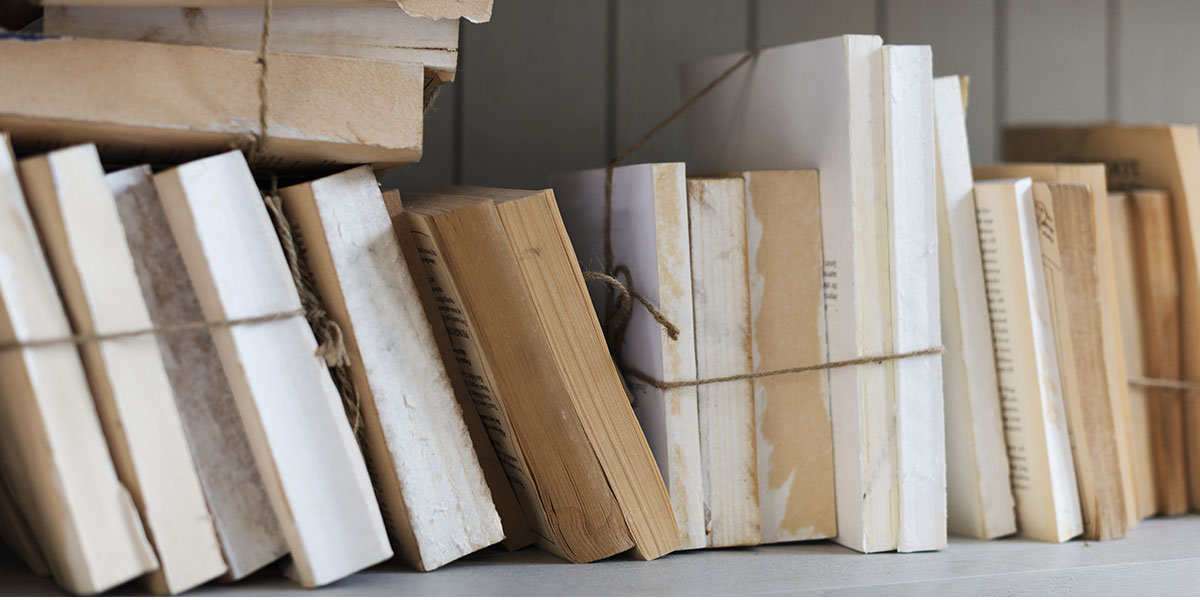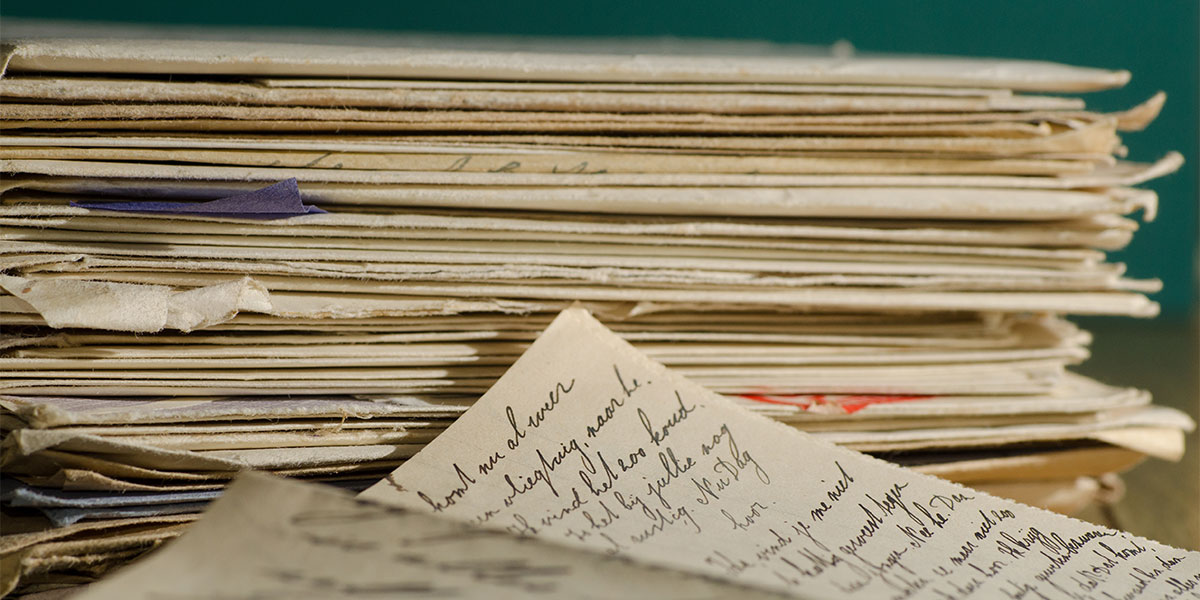There’s no one model for libraries, archives and museums to coexist and interact. Each entity can be a stand-alone repository, a mixture of two entities, or contain all three entities. Library, Archive, and Museum (LAM) professionals are trained in organizing and categorizing items in their respective collections. Since this is their specialty they’ve applied the same principles to classify LAM entities separately, due to the LAM's slightly different functions and collection materials.
We've Moved!
Think Clearly has a new home! Click here to see our latest posts.
*If there’s older content you’d like to catch up on, you can browse right where you are, until Friday, April 5th.
We know it takes a minute to get used to change!
Topics: Museums, Special Libraries, Digital Archives, Archives, Collections Management
People who need people may indeed be the luckiest people in the world, but if you depend on others in order to do your job successfully, you’re going to need a strategy that embraces both daily partnership and situational independence.
Topics: Integrated Library Systems, ILS, Special Librarians
Keys to Developing a Comprehensive Archives Collection Development Policy
Archives and special collection development policies should state what the organization currently holds and the collecting areas, especially records of enduring value that represent the organization's history. A policy will not only formalize the archives program, it will allow you to focus on what you would like to acquire as well as to disregard materials that fall outside of the collection. Focusing on what you will not collect will also allow you to deaccession materials that should not be in the collection.
Topics: Archives Collections Management Software, Strategy, Digital Archives
In his recent Law.com post, 5 Steps for Beginners to Implement a Knowledge Management System, Zach Warren gives an overview of a KM session he attended during 2018’s CLOC (Corporate Legal Operations Conference) in April. He joined the beginners portion of the session, led by KM experts from Baker McKenzie and Cisco, whose recommendations are just as relevant outside the legal sector.
Topics: Knowledge Management, Proven Practices, KM
Grant writing can be a complicated and intensive process. Each grant application will have a different emphasis and process to follow, and if you’re new to grant writing, it can be intimidating. While all grants are different, there are aspects that remain the same. From the dozens of grants I’ve written, read, and edited, I’ve compiled the top 8 tips to a bulletproof proposal.
Part 1: Embedded Librarians and Information Professionals—In the Thick of Things
Embedded special librarians are contributing members of their departments or groups. They are in the thick of things, participating fully in the development of projects, integration of new services, or dissemination of materials and information throughout the organization and its clientele.
Over the years, I have directed or have been a subject matter expert on a number of projects using born-digital and digitized cultural heritage materials. With each new experience, I have gathered a series of questions, an aide-mémoire, to be explored before commencing a digital initiative.
Topics: Archives Collections Management Software, Digital Archives
I can’t lose if I begin this post with a quote from Aristotle: “The whole is greater than the sum of its parts.” I actually do think of this when I consider the impact of integration. With regard to knowledge management applications, KM solutions should not dictate the way people work and how they do things, but rather should dock neatly with existing systems and processes in order to optimize organizational knowledge delivery and exchange.
Topics: Knowledge Management, Special Libraries, KM, Strategy
The Art Gallery of Nova Scotia is the largest art museum in Atlantic Canada; it is an agency of the Province of Nova Scotia and one of the premier arts institutions in Canada. The Gallery is a gateway for the visual arts in Atlantic Canada and is responsible for acquiring, preserving and exhibiting works of art, and for providing education in the visual arts. They manage their collections with Argus.
Topics: Museums, Success Story, Collections Management Software
The simple truth is, there are serious challenges to the long-term sustainability of special libraries, most of which can be turned into opportunities if you develop a strategy for continuous improvement and are proactive.
Topics: Management, Special Libraries, Strategy
Digital files exist simply as data until they are rendered by application software, operating systems, and hardware platforms—making them vulnerable to format obsolescence and media decay. Unlike physical materials, digital files cannot survive what we call “benign neglect”.
Topics: Digital Archives
How are Your Organization's Technology Apps Reviewed and Approved?
In my current book on promoting knowledge management initiatives within the corporate world, I warn against focusing too much on technology, which is a very common problem. But you will ultimately need to use technology for your KM program, so it’s important to understand it and use it in the optimal way. A critical component of successful technology procurement and rollout is a thorough understanding of how technology products are reviewed and approved.
Topics: Knowledge Management, Knowledge Management Systems, KM, Technology
Through working with granting agencies, providing grant reviews, and writing grants with museums and archives, I’ve seen a specific set of mistakes museum professionals make all the time. I’ve even made some of them myself. I want museums to be stronger applicants and am here to share the most common museum grant pitfalls to know and avoid.
There is a great deal of emphasis on “the virtual library” and the substitution of digital resources for print, but the allure of the library as a destination persists, most especially in the public sector. However, many of the reasons that public libraries attract visitors apply to special libraries as well.
Topics: Special Libraries, User Engagement, Strategy
Rights management has significant implications for archival collections. If you have documents or images in your possession, you might believe you own the rights to them. However, even though you may physically have the items, the creator of the documents retains the legal copyright, sometimes for much longer than you would assume.
Topics: Collections Management Software, Digital Archives, Archives
As part of the research for my current book, Proven Practices for Promoting a Knowledge Management Program, I interviewed widely recognized KM leaders to get their take on the secrets to successful KM strategy development and implementation. One of these leaders is with Microsoft.
Topics: Knowledge Management, Professional Development, Marketing, KM
In my work as a museum, library, and archives consultant, I’ve had a great amount of exposure to the fundraising world. Money is so often needed in order to meet museum missions, and grants are often a popular way to secure funding. Through my role as a grant writer and reviewer, I’ve decoded the top four museum funding ideas that are often well received by granting agencies.
Duane Morris LLP is a Philadelphia-based law firm with more than 800 attorneys in 28 offices, practicing in the U.S., U.K. and Asia. The firm serves a broad array of clients worldwide and provides innovative solutions to legal and business challenges.
Topics: Integrated Library Systems, Special Libraries, ILS



















